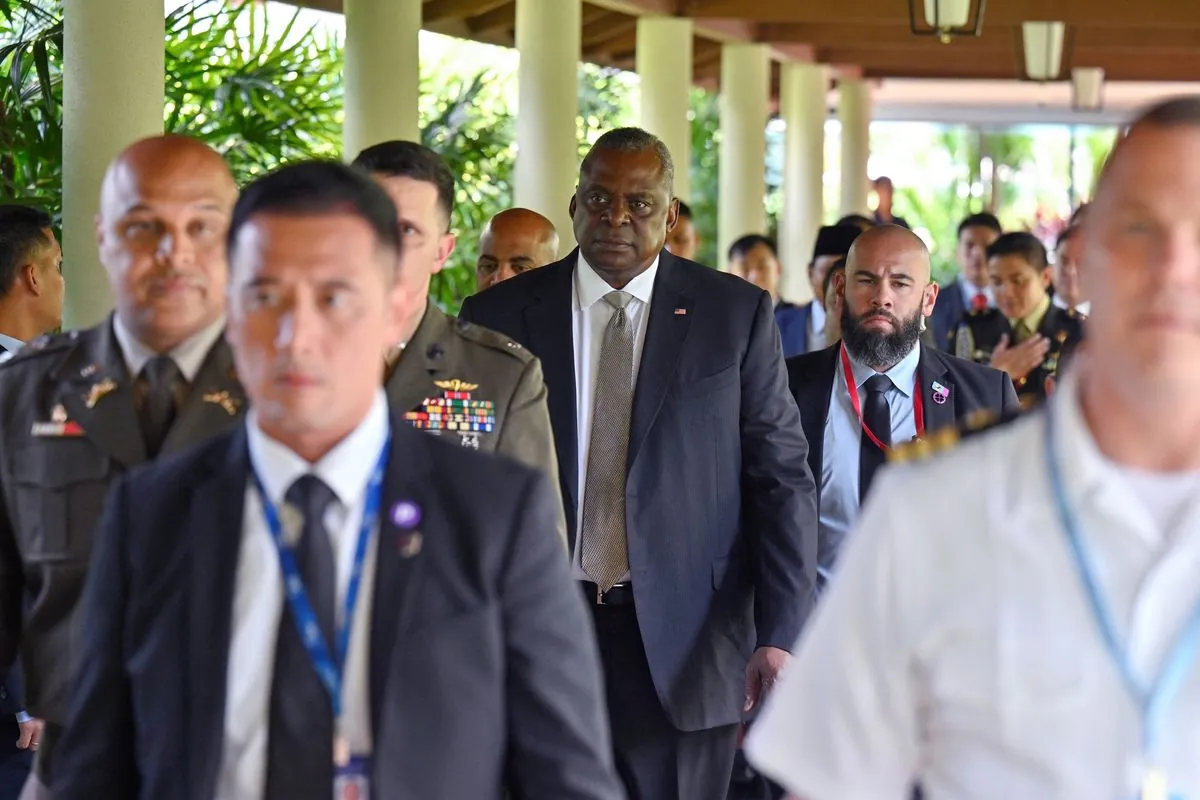Global Power Shift: The Emerging Era of Contested Western Influence
As Western dominance wanes, a new geopolitical landscape emerges. The Shangri-La Dialogue in Singapore highlights growing tensions between the US and China, while the expansion of BRICS signals a multipolar world order.

In June 2022, a significant diplomatic encounter unfolded in Singapore, showcasing the evolving dynamics of global power. The Shangri-La Dialogue, an annual security summit, provided a neutral ground for Lloyd Austin, the US Secretary of Defense, and Wei Fenghe, China's Defense Minister, to address mounting tensions between their nations.
Austin emphasized the substantial US military presence in the Indo-Pacific region, reaffirming commitments to allies such as Australia, Japan, and India. In contrast, Wei accused the US of attempting to dominate regional affairs and issued a stern warning regarding Taiwan's status.

The summit also featured a virtual appearance by Volodymyr Zelensky, the Ukrainian President, who spoke from Kyiv about the ongoing conflict with Russia. His presence served as a stark reminder of the potential consequences of authoritarian aggression.
The event highlighted the complex relationships between Western and non-Western nations. Singapore, the host country, exemplifies this complexity. Despite its economic success, it has not adopted Western-style democracy since gaining independence from British and Malay rule.
Similarly, Prabowo Subianto, Indonesia's then-defense minister and now president-elect, expressed a nuanced stance. Representing Southeast Asia's largest economy, he praised China's historical role in Asia while emphasizing Indonesia's non-aligned position.
The global landscape has continued to evolve since the 2022 summit. In 2024, the BRICS group expanded to include Egypt, Ethiopia, Iran, Saudi Arabia, and the United Arab Emirates, forming BRICS+. This development signals a shift towards a multipolar world order, challenging Western dominance.
"A new era is dawning for global cooperation and development."
The transition from uncontested Western influence to a more balanced global power structure is underway. While not spelling doom for Western nations, it necessitates adaptation to changing realities. Demographic shifts, wealth distribution, and cultural influence are all contributing to this grand transition.
Traditional methods of maintaining Western influence, such as relying on G7 economic cooperation, may no longer suffice. The multiplication of power centers outside Western reach, including both rivals like Russia and China, and partners like India and Saudi Arabia, requires new strategies for preserving global influence.
Post-colonial sentiments continue to shape international relations. France's struggles to maintain influence in West Africa and criticisms of Western support for Israel during the Gaza conflict exemplify these challenges. The case brought by South Africa against Israel at the International Court of Justice in The Hague further illustrates the diversification of voices in global affairs.
However, geopolitical concerns can sometimes override historical grievances. The Philippines, facing Chinese maritime aggression near the Second Thomas Shoal, has strengthened its security ties with the US, its former colonial power.
As the world navigates this era of contested Western influence, it is crucial to recognize long-term trends rather than fixating on individual events. The future of global politics will be shaped by a complex interplay of historical legacies, emerging powers, and evolving alliances.


































